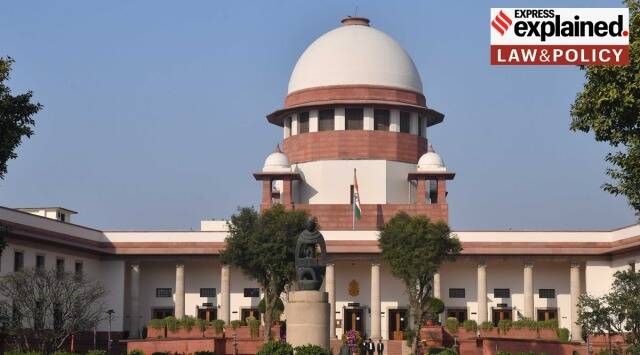Important for
Prelims: Indian Polity
Mains: General Studies Paper II
SC ruling on Agnipath scheme: What does promissory estoppel under contract law mean?

- Claim of Doctrine of Promissory Estoppel was made in the Supreme Court related to petitions of shortlisted candidates in the earlier recruitment process to Army and Air Force which was cancelled when Agnipath scheme was notified.
Doctrine of Promissory Estoppel :-
- Promissory estoppel is a concept developed in contractual laws. It prevents a “promisor” from backing out of an agreement on the grounds that there is no “consideration.”
- The doctrine is invoked in court by a plaintiff (the party moving court in a civil action) against the defendant to ensure the execution of a contract or seek compensation for failure to perform the contract.
Related Case:
- In the Chhaganlal Keshavalal Mehta v. Patel Narandas Haribhai (1981) case, the Supreme Court listed out a checklist for when the doctrine can be applied.
- Firstly, there must be a clear and unambiguous promise.
- Secondly, the plaintiff must have acted relying reasonably on that promise.
- Thirdly, the plaintiff must have suffered a loss.
- Current Stance of SC over Agnipath Petition:
- The Supreme Court pointed out that “promissory estoppel is always subject to overarching public interest”.
- It also added that “this is not a contract matter where promissory estoppel in public law was applied, it is a public employment” and that “the question of applying this principle will not arise in this case”.
Agnipath Scheme :-
- It allows patriotic and motivated youth to serve in the Armed Forces for a period of four years.
- The youth joining the army will be called Agniveer.
- Under the new scheme, around 45,000 to 50,000 soldiers will be recruited annually.
- However, after four years, only 25% of the batch will be recruited back into their respective services, for a period of 15 years.
Objectives:
- It is expected to bring down the average age profile of the Indian Armed Forces by about 4 to 5 years.
- The scheme envisions that the average age in the forces is 32 years today, which will go down to 26 in six to seven years.
- Aspirants between the ages of 17.5 years and 23 years will be eligible to apply.
Benefits for Agniveers:
- Upon the completion of the 4-years of service, a one-time ‘Seva Nidhi’ package of Rs 11.71 lakhs will be paid to the Agniveers that will include their accrued interest thereon.
- They will also get a Rs 48 lakh life insurance cover for the four years.
- In case of death, the payout will be over Rs 1 crore, including pay for the unserved tenure.
- The government will help rehabilitate soldiers who leave the services after four years. They will be provided with skill certificates and bridge courses.
Practice Questions for Prelims
Consider the following Statements regarding the Agnipath Scheme:
1. 10% of the vacancies are reserved for the recruitment in CAPFs and Assam Rifles for the Agniveers.
2. The entry age for all new recruits in the Armed Forces has been fixed as 17 ½ – 23 years of age.
3. Only 25% will be retained in service for another 15 years, as permanent cadres.
Select the correct Statement(s) using the code given below.
a) 1 and 2 only
b) 2 and 3 only
c) 1 and 3 only
d) All of the above
Ans.c)




Leave a Reply
You must be logged in to post a comment.